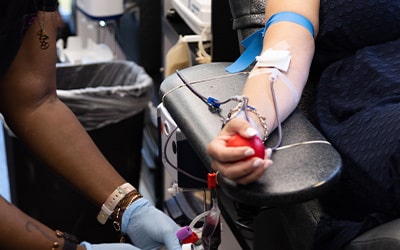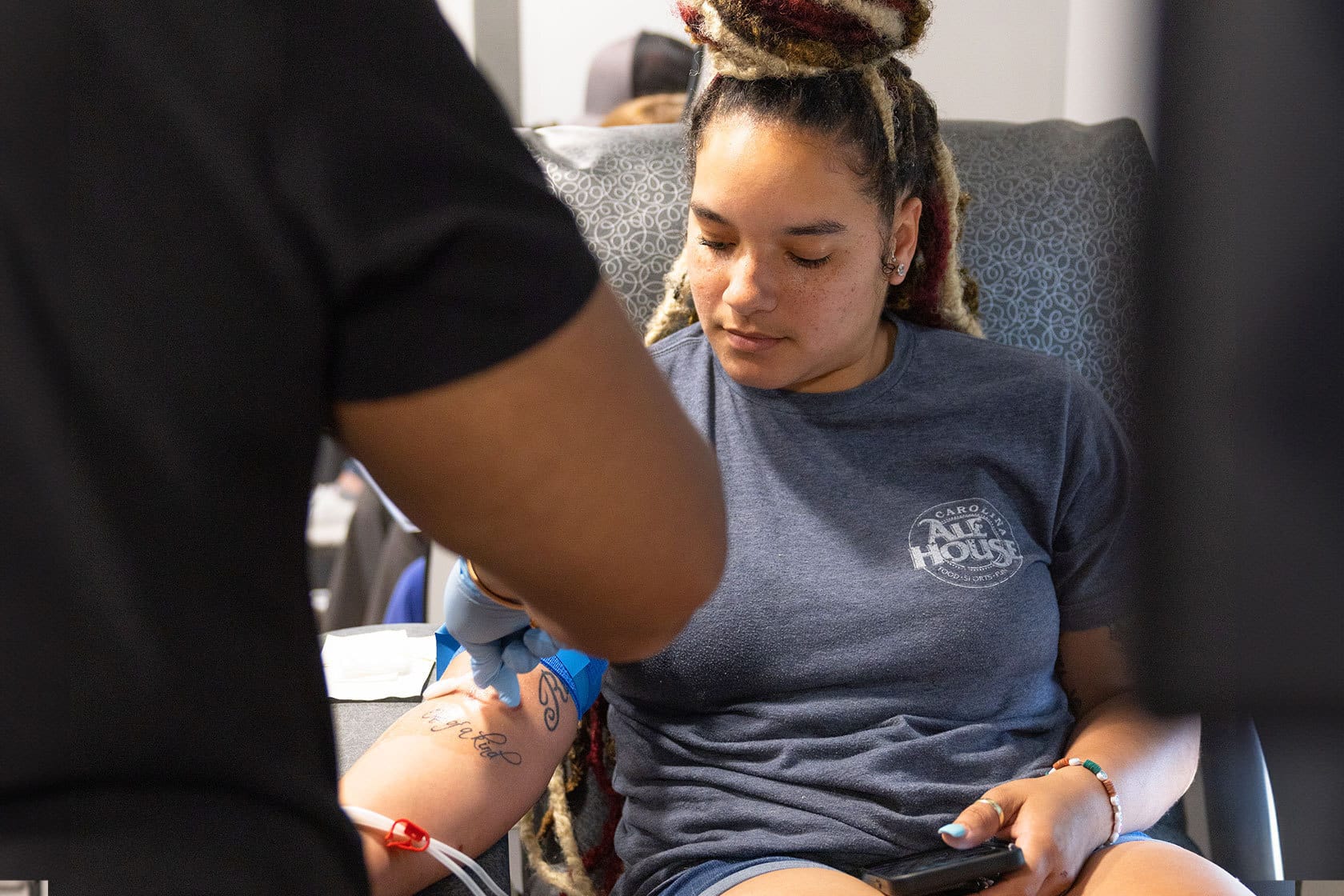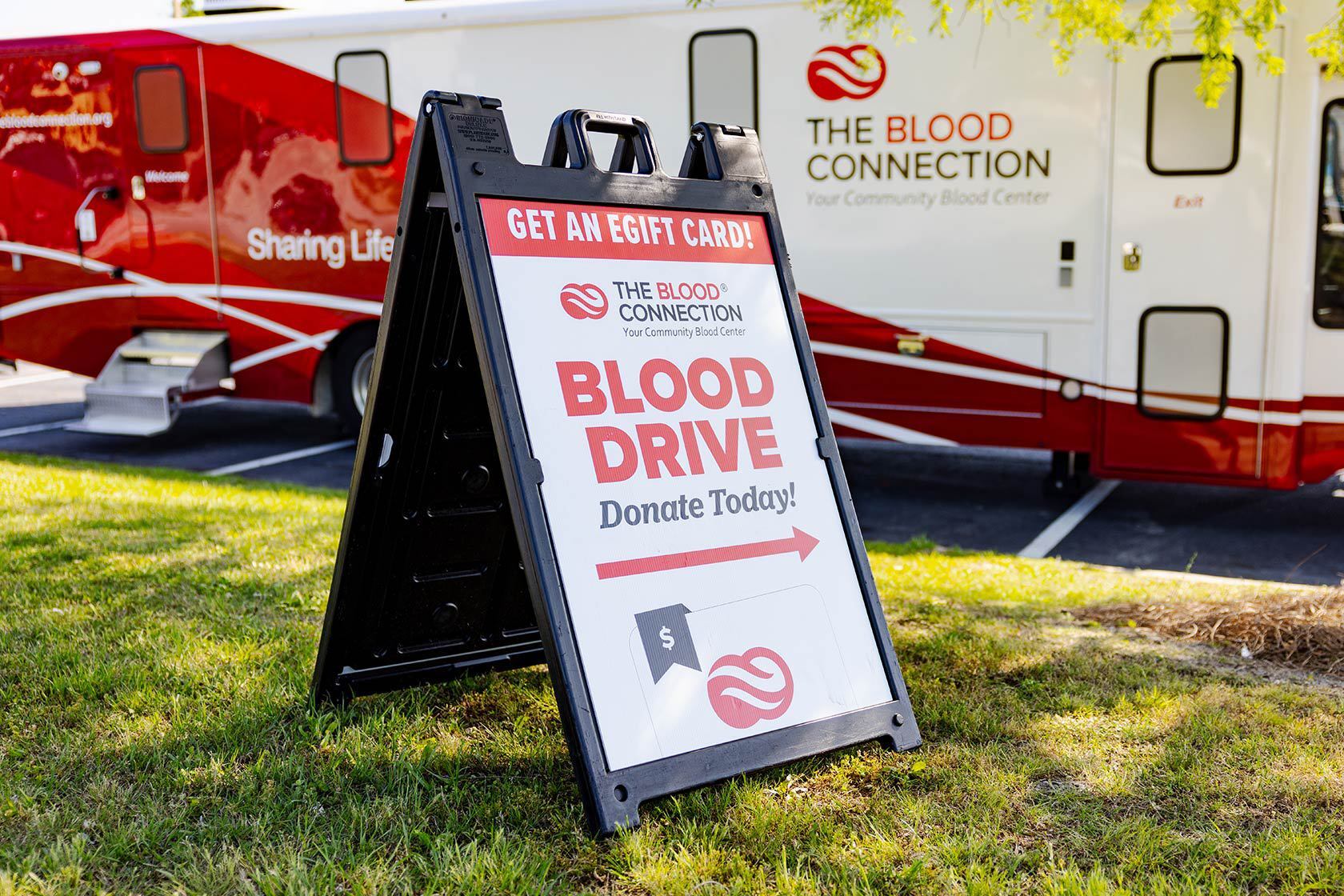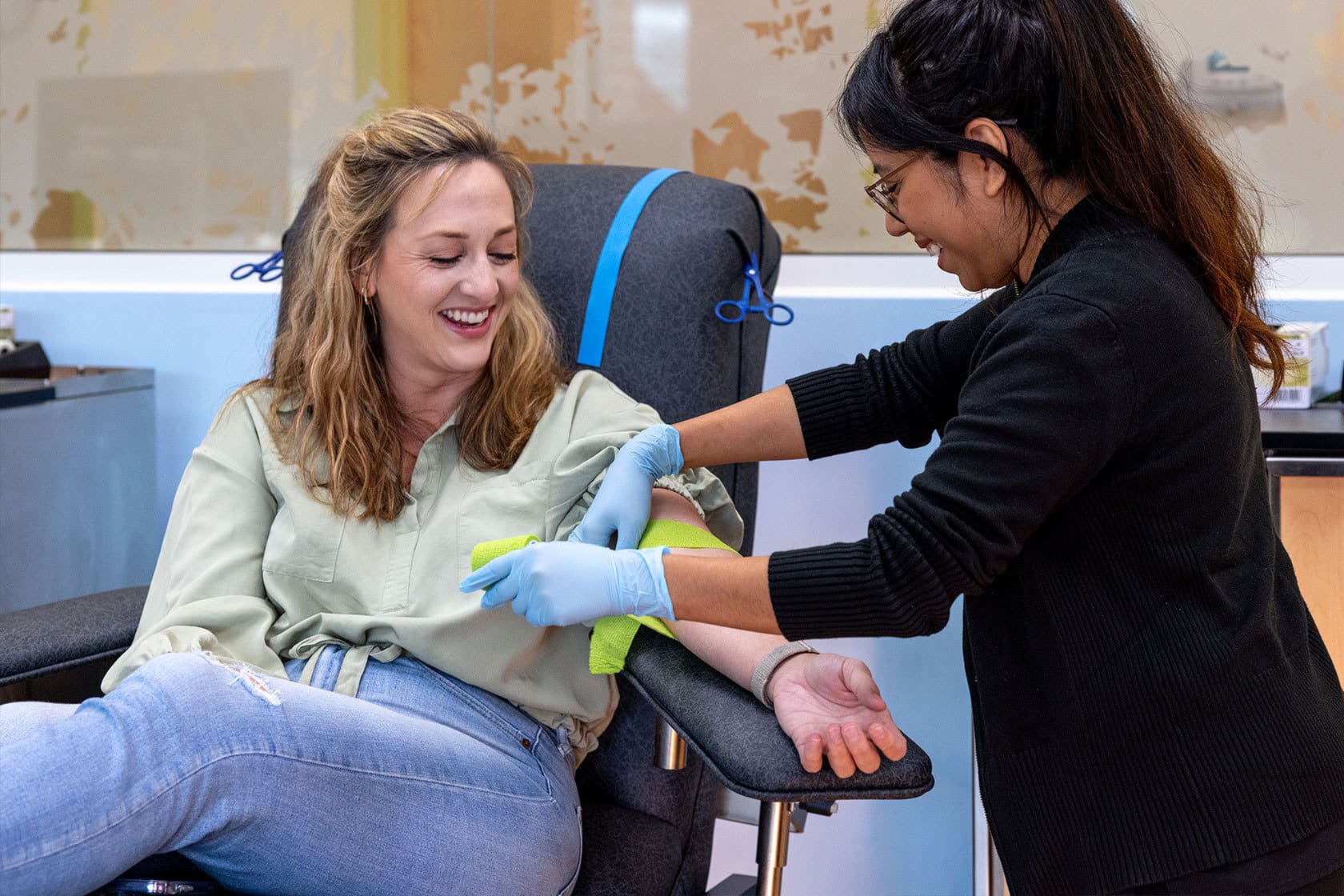
Emergency Preparedness: Blood Reserves and Disaster Response

Emergency Preparedness: Blood Reserves and Disaster Response
Every two seconds, someone in the U.S. needs a blood transfusion. That number increases in the face of large-scale emergencies. Natural disasters, mass casualty incidents, and widespread health crises can quickly strain blood banks and medical facilities, emphasizing the need for a readily accessible national blood supply. But emergencies aren’t the time to collect immediately needed donations; blood must be available when the emergency occurs — ultimately, it’s the blood on the shelves that saves lives. Unfortunately, blood can’t be recreated or substituted, so the national blood supply depends on the regular generosity of blood donors.
A steady blood supply is a cornerstone of emergency preparedness and can be the difference between life and death. And while having that supply in anticipation of unexpected surges in demand is essential, maintaining a steady flow of donations during and after disasters is equally important to sustain ongoing readiness.
The Importance of Blood Reserves in Disaster Response
Predicting the timing and scale of disasters is nearly impossible. Having a reliable blood supply at all times is the key to mitigating the stress caused by emergency situations that cause a sudden surge in demand for blood. Beyond the increase in demand, disasters can lead to a lower number of donors, further depleting the supply. Building a steady blood supply ensures medical facilities have immediate access to adequate quantities of various blood types.
In times of crisis, the importance of a steady blood supply can’t be overstated. Disasters leave communities grappling with a shortage in blood donations, whether due to logistical challenges or an inability for individuals to donate. A proactive approach requires the community’s involvement and commitment to ensuring the available blood supply stays at levels that allow healthcare professionals to care for those affected by the emergencies. By working together, we can better equip our country and local communities to handle unforeseen challenges and save countless lives.
Challenges To Maintaining a Blood Supply
Maintaining a steady blood supply is often easier said than done. From the biological nature of blood to uncontrollable external factors, there are countless reasons why the national blood supply might dip below ideal levels.
For starters, blood has a very limited shelf life. Platelets can last five to seven days, and red blood cells can last 21 to 48 days. Every donation must also undergo 24 to 48 hours of post-donation testing. This testing is part of a rigorous screening process that detects infectious diseases or other health issues that could be transmitted during transfusions. While maintaining high safety standards is essential, these processes increase the complexity of donation collection.
Getting blood donations to recipients requires transportation and logistics, which are inherently unpredictable. Delays in supply chains or natural disasters can slow down transportation, impeding timely delivery and affecting availability. At The Blood Connection, we have an expansive fleet of carriers spread out across our areas of service to mitigate the potential impact of supply chain disruptions.
And while these variables demand attention, at the end of the day, the key to maintaining the national blood supply is you — our donors. Unfortunately, seasonal weather, travel, and misconceptions about donating often keep people from regularly donating.
At The Blood Connection, we’re committed to more than just collecting donations. We prioritize donor education, debunk misconceptions about donating, and highlight the impact of every donation. By creating a culture of transparency and understanding, we’re building a community of knowledgeable and committed donors and doing our part to ensure a reliable and resilient blood supply.
Your Role in Emergency Preparedness
A steady blood supply in the face of a disaster can save lives, but a fully stocked supply is only possible because of the generosity of blood donors. Having a consistent pool of donors helps us maintain a baseline blood supply that can keep up with the increased demand of emergency scenarios. Your donation could mean that medical facilities have the supply they need to address immediate and unexpected needs.
Beyond the sheer volume of donations, a large pool of regular donors also helps build a comprehensive blood supply to treat patients with diverse blood types. A well-rounded supply caters to different patient needs, which is especially critical during emergencies when matching donation blood types to recipients is crucial.
If you want to donate, we invite you to visit The Blood Connection today. When you donate blood, you save lives — a single donation can save up to three lives! Being part of a community of consistent donors allows you to help maintain a stable blood supply that ensures patients get the life-saving measures they need whenever they need them. To start donating, locate a Blood Connection donation center near you. You can schedule an appointment online or simply walk into the center ready to give blood. As long as you meet the eligibility requirements, you’ll be on your way to saving lives!









